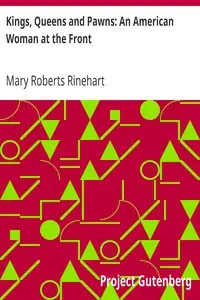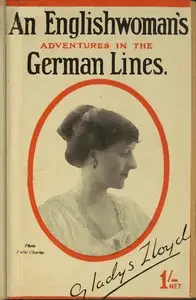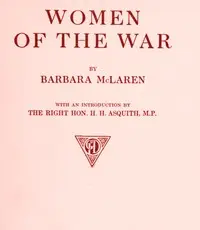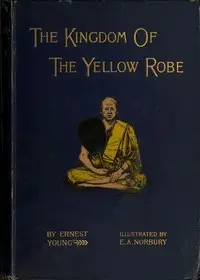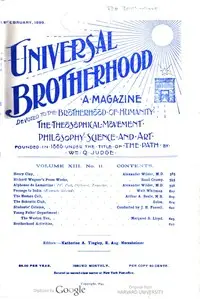"A Woman and the War" by Frances Evelyn Maynard Greville Warwick is a series of thoughtful writings composed during World War I, examining how the conflict reshaped society. Through a woman's eyes, the book highlights the hardships and contributions of people during the war, addressing important topics like changes in social structures, the evolving place of women, and a questioning view of those in power. The author uses her observations to voice concerns about how the conflict affects society, especially women and those less fortunate. Starting with a preface, the author thinks about the chaotic war period and how it impacted governance and independence. The first chapter challenges common beliefs about past connections between England and Germany before the war by diving into the relationship between King Edward and the Kaiser, urging readers to think critically about political stories and to be more aware and proactive during crises.
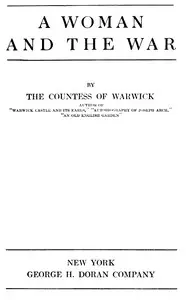
A Woman and the War
By Frances Evelyn Maynard Greville Warwick
Witness a time of war through a woman's eyes, as she challenges political narratives and champions social change amidst global conflict.
Summary
About the AuthorFrances Evelyn "Daisy" Greville, Countess of Warwick was a British socialite and philanthropist. Although embedded in late-Victorian British high society, she was also a campaigning socialist, supporting many schemes to aid the less well-off in education, housing, employment, and pay, and was often known as the "Red Countess". She established colleges for the education of women in agriculture and market gardening, first in Reading, then in Studley. She established a needlework school and employment scheme in Essex as well as using her ancestral homes to host events and schemes for the benefit of her tenants and workers. Greville was a long-term confidant or mistress to the Prince of Wales, who later became King Edward VII.
Frances Evelyn "Daisy" Greville, Countess of Warwick was a British socialite and philanthropist. Although embedded in late-Victorian British high society, she was also a campaigning socialist, supporting many schemes to aid the less well-off in education, housing, employment, and pay, and was often known as the "Red Countess". She established colleges for the education of women in agriculture and market gardening, first in Reading, then in Studley. She established a needlework school and employment scheme in Essex as well as using her ancestral homes to host events and schemes for the benefit of her tenants and workers. Greville was a long-term confidant or mistress to the Prince of Wales, who later became King Edward VII.


